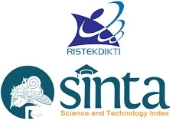Analisis Kebutuhan Pelatihan Berdasarkan Kompetensi Pramuwisata di Provinsi Jawa Tengah (Competency-Based Training Needs Analysis Of Tour Guide In Central Java)
Abstract
ABSTRACT
Training Needs Analysis is a key point of effective training, where needs or gaps of competencies identified systematically and thoroughly to achieve training goals and objectives. In this study, a set of competency standards compiled into questionnaires, then assessed according to the guides' perceptions of importance and performance level at work using self-assessment. Respondents are 95 tour guides in Central Java. The research methods also employed field observation, document study, and interview with stakeholders related to the development of competency-based training. As a result, out of the 29 competencies measured, 26 competencies considered 'very important' and others considered 'important'. Meanwhile, from the performance appraisal, 93% of competencies rated 'good', one competency rated 'very well', and one competency performed 'good enough'. If it is assumed that very important competency value indicators are the same as very good performance, then most of the respondents' performance is measured 'under-value'. This represents the needed of training, supported by the results of perceptions from stakeholders analyzed using NVivo 12 Plus.
ABSTRAK
Analisis kebutuhan pelatihan merupakan kunci pelaksanaan pelatihan yang efektif, dimana kebutuhan atau kesenjangan kompetensi diidentifikasi secara sistematis dan menyeluruh untuk mencapai sasaran dan tujuan pelatihan. Dalam penelitian ini, seperangkat standar kompetensi disusun ke dalam kuesioner, kemudian dinilai menurut persepsi pramuwisata terhadap tingkat kepentingan kompetensi kerja, serta bagaimana kinerja mereka dalam menerapkan standar tersebut menggunakan penilaian diri. Responden merupakan pramuwisata di Jawa Tengah sejumlah 95 orang. Selain kuesioner, penelitian juga menggunakan metode observasi lapangan, studi dokumen, serta wawancara kepada pemangku kepentingan yang terkait dengan pengembangan pelatihan berbasis kompetensi. Hasilnya, dari 29 kompetensi yang diukur, 26 kompetensi dianggap 'sangat penting' dan lainnya dianggap 'penting'. Sedangkan dari penilaian kinerja, 93 persen kompetensi dinilai 'baik', satu kompetensi dilakukan dengan 'sangat baik', dan satu kompetensi dinilai 'cukup baik'. Jika diasumsikan bahwa indikator nilai kompetensi sangat penting sama dengan kinerja sangat baik, maka sebagian besar kinerja responden diukur dengan 'under-value'. Hal ini menunjukkan perlunya pelatihan dilakukan, didukung oleh hasil persepsi dari para pemangku kepentingan yang dianalisis menggunakan NVivo 12 Plus.
Keywords
Full Text:
PDFReferences
Austin, Z. (2019). Competency and its many meanings. Pharmacy, 7(2), 1-6.
Azizurrohman, M., dkk. (2022). An evaluation of Indonesian National Work Competency Standards (SKKNI): A case study of the Gili Balu. Journal of Indonesian Tourism, Hospitality and Recreation, 5(2), 145-154 .
Kapa, M. G., de Crom, E. P., & Hermann, U. P. (2022). An exploration of tourist guides’ competencies to create memorable tourist experiences. GeoJournal of Tourism and Geosites, 44(4), 1350-1358.
Kassawnh, M. S., et.al. (2019). The impact of behaviors and skills of tour guides in guiding tourist groups. African Journal of Hospitality, Tourism and Leisure, 8(1), 21-22.
Landa, K. S., Kamil, M., & Sardin, S. (2021). Analisis efektivitas pelatihan berbasis kompetensi “Meta sintesis komponen pelatihan.” Jendela PLS, 6(2), 67-76.
Marsela, A. S., & Wijaya, A. (2020). Dampak pengembangan objek wisata Goa Kreo bagi kesejahteraan masyarakat di Kelurahan Kandri, Kecamatan Gunungpati, Kota Semarang. Solidarity: Journal of Education, Society and Culture, 9(1), 848-856.
Misran, M. (2019). Kompetensi berbicara pramuwisata arab di Indonesia (Studi Kasus di kawasan puncak). Adabiyyāt: Jurnal Bahasa dan Sastra, 3(1), 96-119.
Noha, A. K.. (2021). Role of tour guides in tourism promotion and impact on destination image and tourist revisit intention in Egypt: A PLS-SEM model. Journal of Association of Arab Universities for Tourism and Hospitality, 20(1), 78–110.
Saraiva, A. L. O., & Anjos, F. A. dos. (2019). Tour guide competencies: a study of vocational programs in Brazil TT - As competências do guia de turismo: um estudo sobre os cursos de formação técnica no Brasil las competencias del guía de turismo: un studio sobre los cursos de capacitación técnica en. Revista Brasileira de Pesquisa Em Turismo, 13(3), 36-54.
Sholikhah, M., & Munir, M. (2023). Manajemen diklat dalam menganalisis kebutuhan pelatihan. INTIZAM: Jurnal Manajemen Pendidikan Islam, 6(2), 72-83.
Shibani, M. (2017). The training of technical staff in Libyan industrial companies: Issues in traning needs analysis. Journal of Human Resource Management, 20(1), 42-53.
Widodo, D. S., & Yandi, A. (2022). Model kinerja karyawan: Kompetensi, kompensasi dan motivasi, (Literature Review MSDM). Jurnal Ilmu Multidisplin, 1(1), 1-14.
Winkler, D. (2018). How to conduct a TNA: Guideline for the practical planning and implementation of a Training Needs Analysis (TNA). Germany GIZ. 1-72.
Wong, S.-C. (2020). Competency Definitions, Development and Assessment: A Brief Review. International Journal of Academic Research in Progressive Education and Development, 9(3), 95 - 114.
DOI: https://doi.org/10.17509/jithor.v6i1.53836
Refbacks
- There are currently no refbacks.

This work is licensed under a Creative Commons Attribution-ShareAlike 4.0 International License.
eISSN : 2654-4687
pISSN : 2654-3893
This work is licensed under Creative Commons Attribution-ShareAlike 4.0 International License















